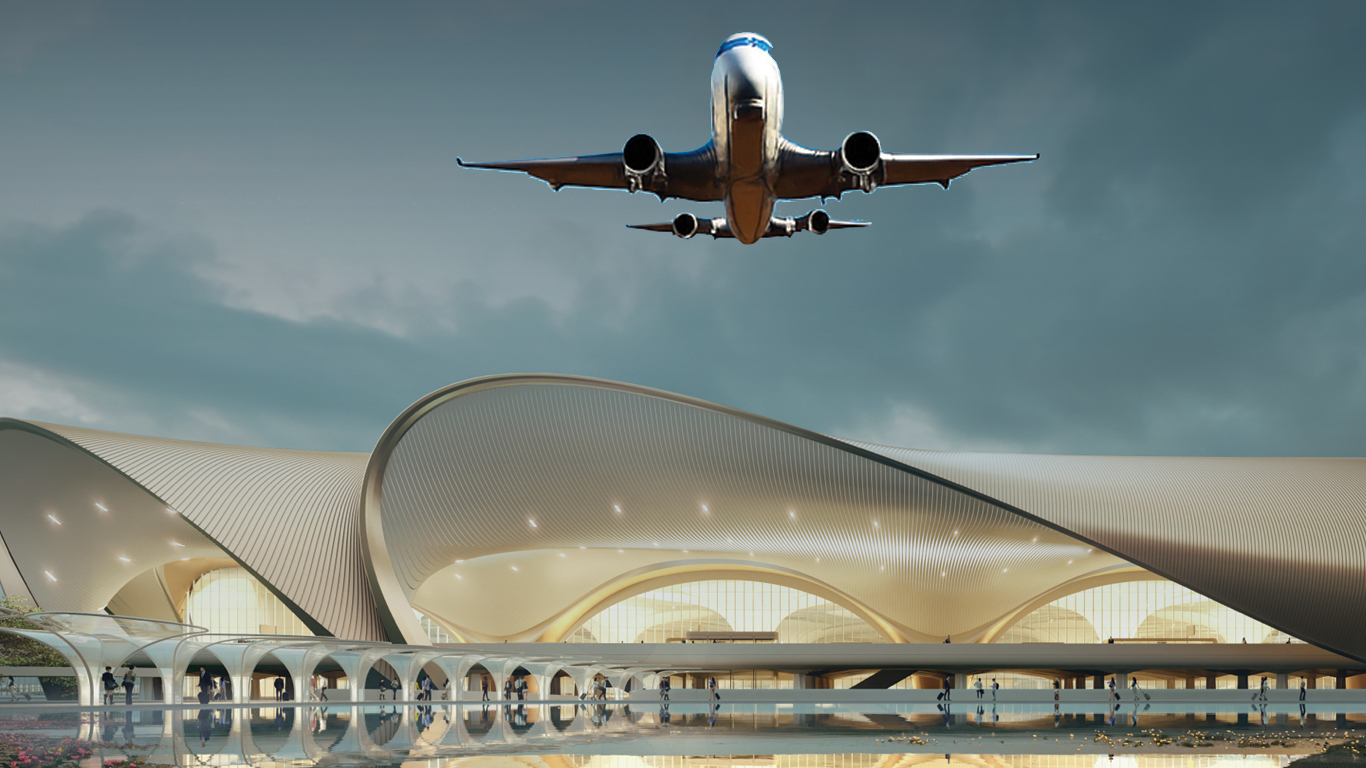By Water Taxi
Copyright knnindia

Mumbai, Oct 7 (KNN) Prime Minister Modi will inaugurate the Navi Mumbai International Airport (NMIA) on October 8, during his 2-day visit to Maharashtra.
The NMIA, India’s largest Greenfield airport developed under a Public–Private Partnership at a cost of approximately Rs 19,650 crore, is set to be a cornerstone of India’s vision to become a global aviation hub.
Spread over 1,160 hectares, NMIA is expected to eventually handle 90 million passengers annually and 3.25 million metric tonnes of cargo.
Among its modern features, NMIA will have an Automated People Mover (APM) linking its four passenger terminals, dedicated storage for Sustainable Aviation Fuel (SAF), 47 MW solar power capacity, EV bus services, and will be the first Indian airport connected by Water Taxi.
The airport aims to operate alongside Chhatrapati Shivaji Maharaj International Airport (CSMIA) to decongest Mumbai and position the city among global multi-airport hubs.
Modi will also inaugurate Phase 2B of Mumbai Metro Line-3 (Aqua Line), extending from Acharya Atre Chowk to Cuffe Parade, completing the 33.5 km fully underground line at a total cost of over Rs 37,270 crore.
The metro will serve 13 lakh passengers daily, connecting South Mumbai’s cultural districts and key administrative and financial hubs, including Nariman Point, BSE, and Mantralaya. The project integrates with existing metro, monorail, suburban rail, and airport systems to enhance last-mile connectivity.
Additionally, he will launch Mumbai One, an integrated mobility app connecting 11 public transport operators, providing features like mobile ticketing, real-time updates, multimodal connectivity, and safety functions.
He will also inaugurate the Short-Term Employability Program (STEP) in Maharashtra, aiming to create 2,500 new training batches, including courses in AI, IoT, EVs, and additive manufacturing.
On October 9, PM Modi will host UK Prime Minister Keir Starmer in Mumbai.
The two leaders will review progress under the India–UK Comprehensive Strategic Partnership and discuss cooperation in trade, investment, technology, innovation, defence, and climate.